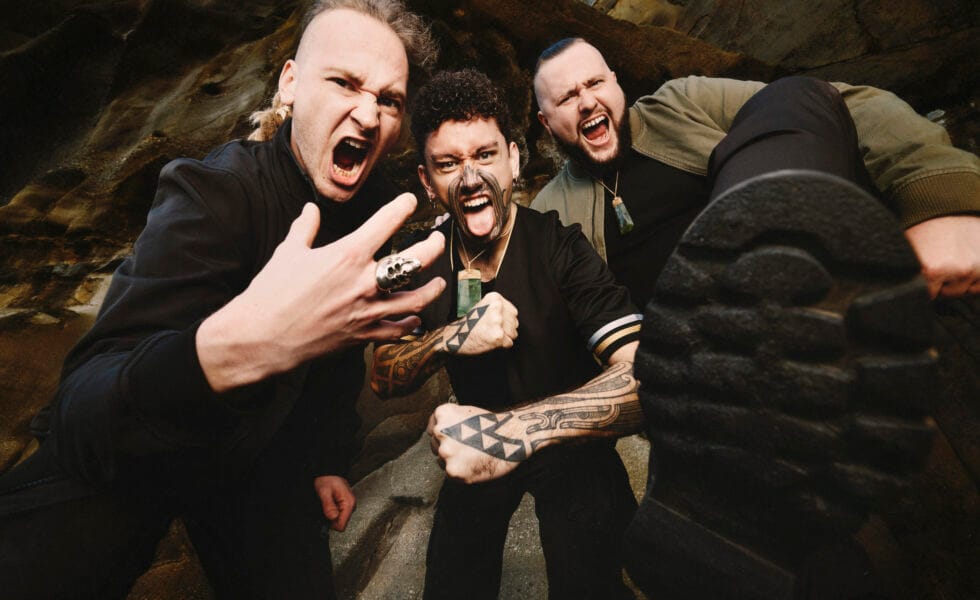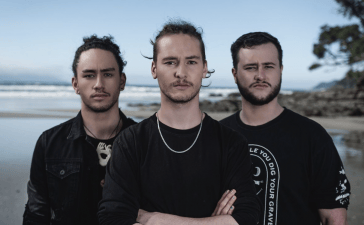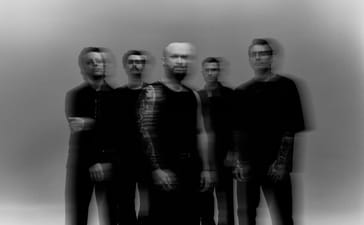The New Zealand metal band talks their new album, metal snobs, and how they became the pioneers of Māori metal
It started with two brothers in a competition. A music competition, that is. Auckland, New Zealand. Henry de Jong and his younger brother, Lewis de Jong, were just eight and ten years old when they first got up on stage, competing in Rock Quest.
But for Alien Weaponry that’s not where it all began. No, that moment came a little later, in a different competition — Pacifica Beats.
As Henry puts it, this was where Alien Weaponry was properly born.
“The competition was about writing music, but you had to include your culture in it,” Henry says. “We had some mates enter with reggae songs, but we were metal heads. So, we thought, ‘What if we did a Māori song but kept it metal?’ We didn’t really know what would happen, but we thought we’d give it a go.”
Turns out, they didn’t just give it a go — they hit it out of the park. What started as an experiment quickly turned into something that would change the course of their lives. They’d found something uniquely their own.
“I remember seeing people’s grandfathers, standing up with their canes, yelling ‘I love this!’ It was amazing to see,” Henry says. “From then on, we were like, ‘Okay, I guess we’re a Māori band now.’”
The name Alien Weaponry came from a late-night movie binge, when they watched Peter Jackson’s District 9 together. The name stuck, and so did the band’s rise. Their dad, Niel, took on the role of manager, while also doubling as their front-of-house sound engineer during gigs. Their mum, Jette, took care of tour management and publicity.
It wasn’t long before the two brothers — Henry on drums, Lewis on vocals and guitar. Tūranga Morgan-Edmonds later joined the band in 2020 to play bass.
Today, I’m speaking to Henry and Tūranga over the phone. They’re both at home just north of Auckland, and the connection feels easy — almost like I’m in the room with them, part of the conversation. There’s a sense of camaraderie between them, the kind of closeness that comes with years of sharing stages, songs, and a purpose.
“We were the first ones to do it,” Henry says, nodding slowly when asked about Māori metal. “There’s another band doing it now here in New Zealand, but what we started was the first real wave of Māori metal — singing in the native language and playing metal music. That was us.”
It’s not an exaggeration to say they kick-started something. But with that kind of pioneering spirit comes the inevitable pushback, and for Alien Weaponry, it often comes in the form of comments on their Facebook posts.
“Every now and then, you’ll get some angry old guy in the comments, talking about some obscure metal band from ages ago that supposedly sang in Māori,” Tūranga says. “But we know the truth — we were the first.”
And while their origins are rooted in their love of metal, Alien Weaponry’s sound was a journey. A question of extremes. Did they want to push the boundaries of extreme metal? Or find something a bit more restrained?
“There’s a thing with New Zealanders,” Tūranga says, laughing. “They love their extreme metal. Some people even think we’re too ‘pop’ because we don’t write about murdering children in our songs. It’s like there’s this line.”
But that’s not to say the new album, Te Rā — released March 28, 2025 — doesn’t carry some heavy themes. After all, what is metal without a bit of darkness?
“There is a song about murdering a bunch of sea demons,” Tūranga says with a grin. “But we don’t quite get to the ‘baby-killing’ level.”
Instead, the new album dives into a space that feels more meaningful. The lyrics are raw, direct, and speak to a world that’s often too afraid to confront itself. One song, 1000 Friends, takes on the dangers of social media — how easily we can lose ourselves in the numbers, the likes, the comments.
“We get caught up in it too, sometimes,” Tūranga admits. “You start focusing too much on those numbers, and before you know it, you’re defining your worth by them. And that’s a dangerous game to play.”
But for Alien Weaponry, the music always comes first.
It starts with them working alone and creating instrumental tracks in isolation. They later bring them together, listen, and then figure out which ones feel right. From there, Lewis lays down the vocals.
“We might come up with thirty instrumental tracks, and then we figure out which ones work,” Henry explains. “For us, it’s the instrumentals that really shape the album. They set the tone.”
Te Rā was recorded over two or three years, a period that was equal parts writing, touring, and navigating the chaos of COVID. “Some of it was touring, some of it was COVID,” Henry says with a sigh. “But we got it done.”
Now, as they tour New Zealand in support of the album, talk turns to the future. Will they be back in Australia soon? Or touring around the rest of the world? Their response is vague but hopeful. “There are some things in the wind,” they say. “But after an album’s released, you can bet we’ll be coming to a place near you soon.”
Metal’s rise into the mainstream has been something of a revelation, especially for a band like Alien Weaponry. For them, it’s about time.
“Metal’s a popular genre right now,” Tūranga says. “Bands like Knocked Loose getting on Jimmy Kimmel, Sleep Token blowing up. Even the Grammys are starting to take notice. It’s a good thing. The elite hate it, but fuck them, I think it’s awesome.”
Te Rā was released on 28 March 2025. It can be streamed or purchased here.









